NEWS ANALYSIS: It’s either ironic or intentionally symbolic that Norway’s new Labour-led government hosted highly controversial talks with the Taliban at an Oslo hotel named “Soria Moria.” That’s also the name of a hard-to-reach castle in a Norwegian fairy tale, and it’s where Labour successfully formed an earlier government in 2005 led by the man now heading NATO.

There’s no question that the goals of the Taliban talks are hard to reach, too. Norway, currently leading the UN Security Council in New York, wants the Taliban to immediately allow girls and young women to return to school, to respect human rights and, most importantly, to avoid a humanitarian catastrophe in Afghanistan. Both poverty and famine threaten the entire Afghan population since the Taliban, best known as a terror organization, seized power in what they now call The Islamic Emirate of Afghanistan late last summer.
“In order to help civilians in Afghanistan, the international community as well as Afghans themselves must have a dialogue with the Taliban,” Norwegian Foreign Minister Anniken Huitfeldt stated when the talks were made public just before the weekend. That’s why she and government colleagues invited Taliban leaders to Oslo for three days of talks that began on Sunday, just after 15 Taliban leaders (all men) were flown to Norway on a private jet that landed at OSL Gardermoen Saturday night.
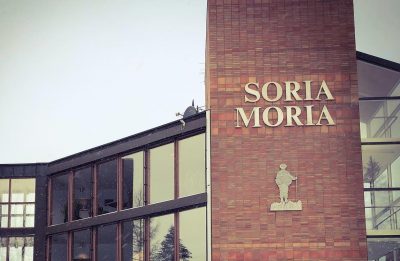
The talks started at the Soria Moria Hotel with representatives of human rights-, women’s rights and hard-pressed Afghan media representatives on Sunday. Views on their results were decidedly mixed. One Afghan woman taking part told Norwegian Broadcasting (NRK) that the Taliban seemed flexible and receptive. Jamila Afghani, who leads the Afghan division of the International League for Peace and Freedom, told NRK she hopes Sunday’s meeting “will lead to negotiations, communication and more dialogue.”
There was some drama at Sunday’s talks, though, over the arrests and disappearances of several women who’ve taken part in public demonstrations for women’s rights in Afghanistan. Taliban leaders denied they were involved in the arrests, but one women’s activist threatened to leave the meeting unless two women in particular were released. She reportedly remained after the Taliban leaders (who have closed schools, prevented women from returning to their jobs and demanded they all use head coverings) promised to investigate the arrests.
On Monday the Taliban was meeting with special envoys from Norway, Germany, Great Britain, France, Italy, the EU and the US. Bilateral meetings with Norwegian diplomats were scheduled for Tuesday.

Foreign Minister Huitfeldt, a Labour Party veteran, wasn’t taking part in the talks herself but staunchly defended them as a means of warding off a catastrophe that looms after humanitarian aid to Afghanistan was cut off when the Taliban seized power. “It’s a tragedy for the Afghan people but can also be dangerous for us,” Huitfeldt said on NRK’s nightly newscast Sunday. “We have seen before that Afghanistan has been a gathering place for international terror, and can set off huge streams of refugees.” She claimed the talks were not organized “with a light heart,” but because the situation in Afghanistan can become far worse than it already is.
Opponents to the talks were out protesting in Oslo during the weekend, complaining to the media and criticizing the Norwegian government’s initiative as both “embarrassing and naive.” Sylvi Listhaug, leader of Norway’s right-wing Progress Party, also claimed it was “a meaningless use of taxpayers money to invite the extremist terror organization Taliban on a luxury tour to Oslo.” Like many others, she blasted how the Foreign Ministry spent NOK 3.5 million to charter the private jet that flew the Taliban to Norway, and is also covering the expenses of all other participants, including their stay at Soria Moria.
“Norwegian authorities’ belief in talking with extremist Islamics about human- and women’s rights is as naive as believing in Santa Claus and the Easter Bunny at the same time,” Listhaug added. “The Taliban has sent 15 men and zero women. That says the most.”
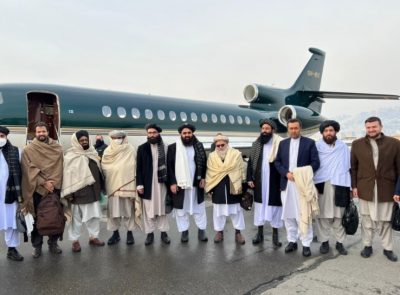
Several Afghan groups in Norway were also out protesting during the weekend, not least because one of the Taliban representatives now in Oslo, Mohammed Anas Zadran also known as Anas Haqqani, is the brother of terrorist leader Sirajuddin Haqqani who’s been behind several terrorist attacks. They include an attack on the Serena Hotel in Kabul in 2008, at which Norwegian journalist Carsten Thomassen was shot and killed while covering a visit by a Norwegian delegation.
Some want Norwegian police to arrest Anas Haqqani while he’s in Oslo. “It hurts so much,” Norwegian-Afghan Zahir Athari told NRK, “it’s as if (Norwegian terrorist) Anders Behring Breivik had visited another country and was accorded equal status.” Athari said they were reporting Haqqani to police as “a war criminal and for carrying out crimes against humanity.”
Objections to the Taliban talks were also coming in from abroad. Vas Shenoy, leader of two non-profit organizations run from Italy, has worked closely with Afghan groups and exiles and called the Oslo meetings “a confusing move with mixed signals.” He noted how Huitfeldt has stressed that the visit is not meant to legitimize or recognize the Taliban yet claims “we must talk to those” who are running the country today.
“The statement in itself is contradictory,” wrote Shenoy in an article sent to newsinenglish.no. “By accepting that the Taliban govern the country, the Foreign Minister has already provided tacit recognition.”
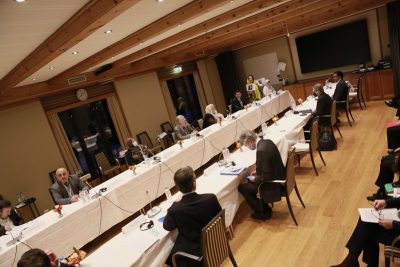
Norwegian Prime Minister Jonas Gahr Støre, who’s not taking part in the talks either and is instead leading another session of the UN Security Council in New York this week, said he can understand why so many people are reacting negatively to the Taliban meetings in Oslo. Støre was caught in the terrorist attack at the Serena Hotel in Kabul himself, when he was foreign minister in the former Labour government led by Jens Stoltenberg, now secretary general of NATO.
“I understand there’s a lot of reaction (to the talks in Oslo),” Støre told NRK Sunday night, noting that the Taliban “is a movement that’s far from our values. But we have to deal with the world as it is.” Since the Taliban now holds power in Afghanistan, he said, it’s the Taliban that still must be met, questioned and challenged.
Several other researchers and experts in foreign policy agree. Arne Strand of the Christian Michelsen Institute in Oslo said he was “positively surprised” over the make-up of the Taliban delegation, led by its foreign minister. “It’s a very interesting group that indicates they’re prepared to discuss many issues,” Strand told newspaper Aftenposten on Monday. “They also represent education, health care and the central bank. It’s an indication they view this as an extremely important meeting.”
Strand pointed out that several members of the former Afghan government that was toppled by the Taliban last year also had a lot on their consciences. “It’s a dilemma after a war that lasted for more than 40 years,” Strand said, “that there’s always someone with blood on their hands.”
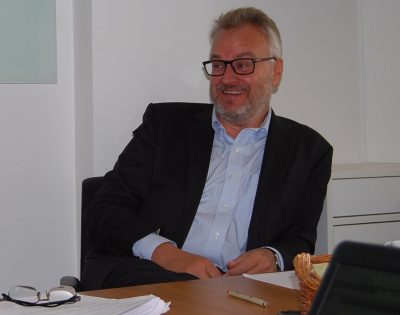
Kristian Berg Harpviken, who has specialized in following the situation in Afghanistan for the Norwegian peace research institute PRIO, was also positive, even calling the Oslo talks “exciting” because they’re the first confirmed meetings in a western country. Harpviken sees an “enormous” need for dialogue with the Taliban.
Harpviken said he thinks the group in Oslo now is willing to negotiate, especially regarding opening of high schools to women. The precarious humanitarian and economic situation also may lead to more armed opposition within the country that can attract more support from the outside.
Liv Kjølseth, secretary general of the Norwegian Afghanistan Committee, also thinks the meetings in Oslo are important. “I can understand the anger and frustration,” Kjølseth told Aftenposten, “but it’s also important that Anniken Huitfeldt stresses this isn’t about legitimizing the Taliban.”
Kai Eide, a veteran Norwegian diplomat and former UN Special Envoy to Afghanistan, said he doesn’t think much concrete will come out of the meetings in Oslo, “but it’s a process and important to follow it.” Eide told NRK that he hopes the Taliban’s more moderate flank will respond to support from the international community.
“We know that there’s disagreement within the Taliban,” Eide told NRK, “and it’s important to encourage the more moderate faction.” He thinks it’s positive that the Taliban accepted the Norwegian invitation to come talk in Oslo.
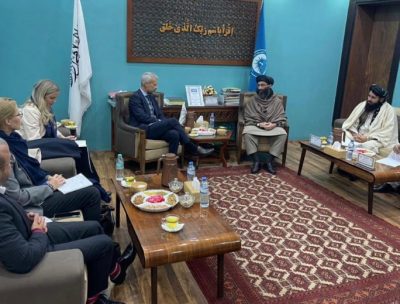
Norway has long had contact with the Taliban, and confirmed its participation at a meeting between western leaders and the Taliban in Doha last October. Norway’s embassy in Kabul remains closed but Ambassador Ole Andreas Lindeman has maintained contact with the new regime. He and a delegation from Norway were back in Afghanistan last week, and Lindeman reportedly played a key role in planning the current meetings in Oslo.
Critics remain skeptical at best that the Taliban will meet western demands in return for renewed humanitarian aid. “It’s important that the (Norwegian) government make hard demands that the Taliban respect human rights,” Bjørnar Moxnes of the Reds Party told newspaper VG. Others fear the Taliban won’t keep any promises made.
The Taliban itself thanked Norway for arranging the meeting “and for sending the private jet to pick us up.” Foreign Minister Amir Khan Muttaqi stated on Afghan TV before leaving for Oslo that “this is our first trip to Europe and we hope it will be a door-opener for good relations and contact, so we can solve the humantarian and economic problems we have.” He said he wanted to bring Afghanistan out of international isolation.
“I’m very glad that we, though our foreign policy, are in the process of establishing good relations with the world community. Afghanistan should no longer be on a collision course with the world. We want to make our country a center for unity and economic development in the region, in line with our Afghan and Islamic traditions.”
That’s where clashes can continue, though. Aftenposten reported on Monday that Taliban spokesman Zabiullah Mujahid denied women are being arrested or kidnapped in Afghanistan, but he defended the Taliban’s “right” to arrest opponents to the regime: “No one should create unease because that disturbs law and order.” He insisted that the new regime believes in women’s rights, but they must be in line within the Taliban’s interpretation of Islamic law.
newsinenglish.no/Nina Berglund

